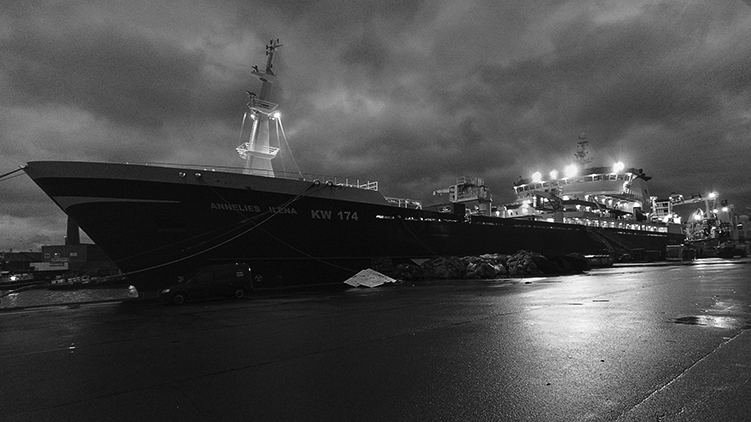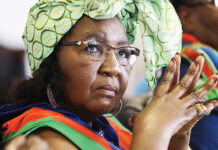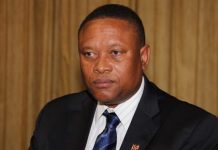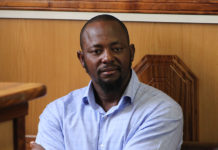By Parcival Weijnen and Bram Logger | 4 November 2020
THE modest office building in Valkenburg, a small town in the Dutch municipality of Katwijk, does not possess the facade one would expect from the epicentre of a global fishing empire.
Yet it does.
From this humble building, the family-owned fishing and shipping company Parlevliet & Van der Plas (P&P) manages more than a hundred subsidiaries operating all over the globe.
And in that widespread network of interconnected companies, P&P works closely with Icelandic company Samherji, which is accused of bribing ministers and business people in Namibia.
Initially, this partnership did not extend to Africa.
In 2012, P&P began trying to gain a foothold in Namibia, but the joint venture – Mack Fishing – they worked with were later discredited for alleged connections to politicians such as former fisheries minister Bernhard Esau.
After a year-and-a-half, they decided to withdraw from Namibia and since 2014, shifted focus to European acquisitions.
As a result, P&P is now the largest fishing company in Europe. This prominent position as a global player has afforded the family a posh life on the Dutch coast of Noordwijk, living among international celebrities such as legendary football coach Louis van Gaal and Charlene de Carvalho-Heineken.
P&P is now linked to the Fishrot corruption scandal, according to an investigation by the investigative journalism groups Spit and weekly news magazine De Groene Amsterdammer.
They investigated Parlevliet & Van der Plas, which co-owned a company called Atlantex with Samherji.
BRAVE NEW WORLD
Namibia’s coast is one of the richest fishing grounds in the world. When the South African colonial regime, was abolished in 1990, the Namibian government recognised the fishing industry as an engine for the economy.
Political leaders determined that developmental aid money would not be needed as the necessary investments would come through private markets. And the government was correct. Namibia quickly became a textbook example of how a developing country could use its natural resources to escape poverty.
But there was also criticism of such an approach. Particularly, the decision to develop primarily large-scale industrial fishing operations rather than small fisheries.
To reconcile this decision, Namibia developed a model in which entrepreneurs could collaborate with foreign vessel owners.
Namibian companies would provide access to local fishing rights and the foreigners would supply the trawlers. The thought was that once the Namibian companies were wealthy enough to buy their own vessels, the foreigners would find new seas to fish.
But the critics were right, as things began to go wrong during Esau’s first term in 2012.
The ‘Fishrot Files’ show that the positive intentions of this economic plan degenerated into bribery, exploitation, and tax avoidance.
“It used to smell like fish here,” says a resident of Walvis Bay. Nowadays, there is hardly any semblance of the once robust fish-based economy in the country’s main port city, as much of the local catch is quickly whisked away to foreign soil. The local fish markets have dwindled, and those who drive past the once-thriving fish factories see only closed gates and dark interiors.
DUTCH CONNECTION
The spacious villa of Diederik (Diek) Parlevliet, the head of the family business, is a hermetically sealed bunker with an indoor swimming pool and, according to media reports, a genuine ‘panic room’.
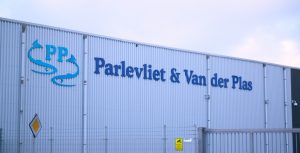
According to P&P, the fish the company catches the world over go mainly to Africa, and thus they claim to trade in some two-and-a-half billion ‘meals’ annually.
“We fish for the poor,” said Parlevliet in an interview with the Dutch NTR radio programme Lijn1.
Cheap fish must be caught in bulk, otherwise it is not profitable, and that is the speciality of this prominent Dutch fishing family.
P&P’s armada consists of ‘super trawlers’, built with European Union support. These gigantic floating factories catch up to 250 000 kilos of fish per day using nets the size of three football fields. Without the need to return to shore, the catch is immediately sorted, packaged, stickered, and frozen in the belly of the vessel – where there is room to store roughly 18 million ‘fish meals’.
P&P is the largest of three companies that jointly control the entire Dutch pelagic catch market. The other two -– also family businesses – are Cornelis Vrolijk and W van der Zwan.
Since the 1970s, these three fishing and shipping companies have been ever striving to expand into new sales markets and gather additional fishing quotas.
To this end, they have united their efforts in the form of the Pelagic Freezer Trawler Association (PFA). While fishing operations reliant upon smaller vessels like cutters have recently been in the news because of their poor economic prospects, pelagic fisheries employing super trawlers are a gold mine.
In 2018, the three PFA family businesses produced a combined N$34 billion in total revenue, and together have yielded four individuals on the Quote-500, an annual list of the 500 richest people in the Netherlands.
TAINTED VESSEL
The Saga vessel was one of three trawlers Samherji used to fish in Namibia.
A contract in the Fishrot Files revealed the intricate ownership relationships surrounding the vessels, with the profits being divided among four companies hailing from as many countries: Belize, Cyprus, Poland, and Namibia. In reality, all of these companies share the same parent company: Samherji. Such a construction is often used for tax avoidance.
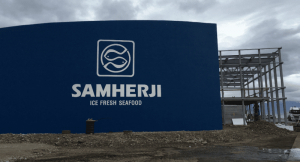
According to the investigative journalism organisation OCCRP, Samherji used the Polish company Atlantex in this way.
A 2014 business plan created by Samherji’s tax expert shows that Atlantex, who managed the Saga, charged a 15% surcharge on operating costs.
In this way, the profits from fishing in Namibian waters were shifted from Namibia to Poland, and in turn, Samherji’s tax bill was substantially lessened.
According to an invoice in the Fishrot Files, the company generated about €3 million in profits in just December 2015 alone.
As Atlantex’s ultimate owner, Samherji was the beneficiary of this financial windfall. But in the late summer of 2018, a second beneficiary was added to the mix -– Parlevliet and Van der Plas –– who purchased a 50% stake in Atlantex for a paltry €50 000.
Quickly thereafter, Diek Parlevliet and his brothers Freek and Dirk van der Plas joined the Atlantex management team, and the Polish company immediately became a member of the Pelagic Freezer Trawler Association (PFA).
To add to the intrigue, the takeover took place just after whistleblower Jóhannes Stefánsson went to the Namibian authorities for the first time, of which the sharks caught wind and he had to flee the country.
“With the acquisition of Atlantex, P&P became a part of Fishrot,” Stefánsson said.
A spreadsheet found within the Fishrot Files showing transactions between bank accounts of Samherji companies and the sharks demonstrates that bribe payments continued until at least January 2019.
According to Global Fishing Watch, an open-source fishing vessel tracking programme, the Saga continued fishing the waters of Namibia until that point.
In other words, during the period that P&P oversaw the Saga, via Atlantex, the trawlers fished for quotas off the coast of Namibia that were obtained by bribes.
P&P responded to questions from Spit with a short answer. The company claims to have had nothing to do with the management of the Saga.
Furthermore, it claims to know nothing about the six Samherji employees prosecuted in the Namibian corruption case.
Samherji sent an extensive response, stating it does not consider itself to be implicated in any wrongdoing in the allegations of Stefánsson and the revelations within the Fishrot Files.
* This article by the research group Spit (www.oc-spit.com) was produced with support from the Money Trail Project (www.money-trail.org) and the Stimulation Fund for Journalism (www.svdj.nl), and originally published at De Groene Amsterdammer.

